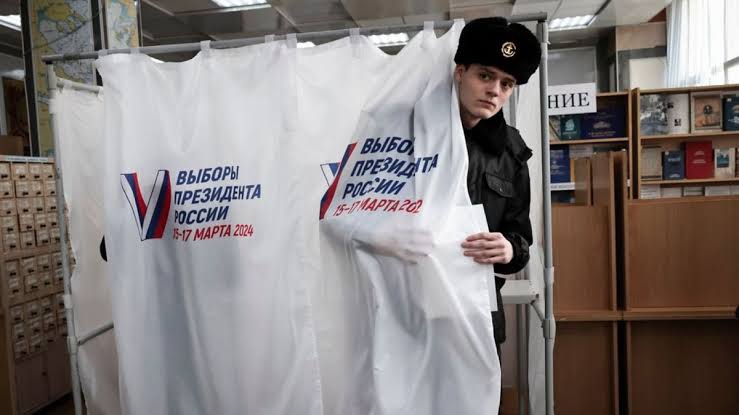Russians vote in election with diminished suspense

Russians embarked on a three-day presidential election on Friday, with expectations high for the continuation of President Vladimir Putin’s rule. However, the event unfolds against a backdrop of heightened authoritarianism, marked by a severe crackdown on independent media and civil rights organizations, consolidating Putin’s grip on power. Furthermore, the ongoing conflict in Ukraine, now entering its third year, casts a shadow over the electoral process.
The voting commenced across Russia’s vast expanse and even extended to illegally annexed regions of Ukraine, with the first polling stations opening in the easternmost regions of Chukotka and Kamchatka. Despite the broad scope of the election, the outcome holds little surprise as Putin pursues his fifth term virtually unopposed. His rivals either languish behind bars, reside in exile, or, in the case of Alexei Navalny, succumbed to dire circumstances in a remote penal colony.
The ballot presents only token opposition candidates who align closely with the Kremlin’s directives, leaving observers with minimal expectations for a free and fair election. Independent monitoring faces significant hurdles, as only registered candidates or state-endorsed entities may deploy observers to polling stations, severely curtailing oversight in nearly 100,000 polling stations nationwide.
International condemnation echoes from Ukraine and the West, decrying Russia’s inclusion of occupied Ukrainian territories in the election. Kyiv denounces the move as a flagrant attempt to exert control over its sovereign neighbor, particularly in regions where reports of coercion, including forced voting at gunpoint, have surfaced.
Amidst these challenges, the opposition endeavors to utilize the electoral platform to voice discontent with the Kremlin’s policies, especially concerning the war and Putin’s leadership. However, the Kremlin’s suppression tactics extend to barring antiwar candidates from the ballot, further narrowing the field of dissenting voices.
As the election progresses, voices of dissent, though marginalized, seek to make a symbolic stand against the status quo. Embracing a strategy endorsed by Navalny before his passing, opposition figures urge citizens to demonstrate their presence at the polls, leveraging the event to showcase opposition to Putin’s rule.
Nevertheless, amidst the restrictions and scrutiny, Russia’s renowned independent election observer group, Golos, underscores the widening chasm between the populace and the decision-making processes. In their assessment, the election fails to capture the genuine sentiments of the people, accentuating the disconnect between citizens and the trajectory of the nation.












